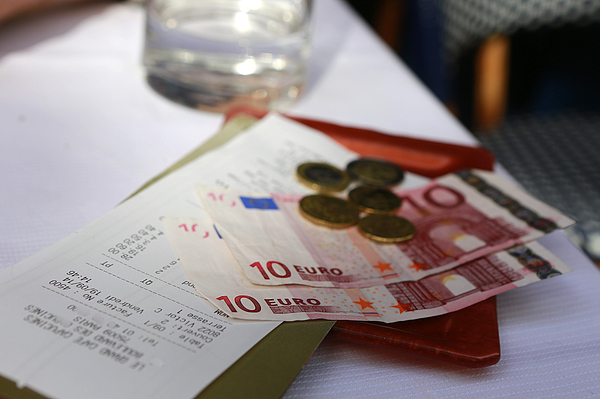
The Tip system is one of the American cultures, paying service providers as a token of gratitude. In the United State, they give 15 to 20 percent of the service price. Although it is a tip culture that does not have much to worry about in other countries, American culture is currently affecting South Korea a lot.
It was also controversial as more restaurants such as domestic restaurants and places asking for tips on using taxis. Kakao T, South Korea's largest mobility platform, has also been controversial by introducing a service that tips taxi drivers or by placing a glass bottle written as a "tip box" at a cafe at the checkout counter. Those who saw this mentioned that it was a culture that they wished had not been created in South Korea. About 40% of the respondents said they were very negative about the introduction of the tipping system in South Korea.
Currently, the introduction of the tip system in South Korea is not looking at it with a good view. There are also many controversies in the United States and moves to eliminate them, but in South Korea, the issue of pilot introduction is controversial. What do you think about the introduction of the tip system in South Korea? Better service will be provided through the introduction of South Korea's tip system vs. Tip culture is not necessary in South Korea.
<South Korea doesn't need a Tipping system>
The tipping system is developed and taken for granted in the United States, but not at all in South Korea. The United States does not guarantee the minimum wage for its employees, but South Korea does not. In South Korea, the minimum wage for workers is legally guaranteed, and through this, they can make a minimum living. But the United States has made up for wages through consumer tips because it does not. From the perspective of South Korea consumers, it seems to be a means to benefit self-employed people, and many people oppose it. As one of the good things about South Korea is that foreigners who visit Korea do not pay tips, many people hope it does not happen in South Korea. In addition, as more and more people oppose the tipping culture in the United States, it is necessary to refrain from being introduced to South Korea.
<Should people tip in Korea?>
Unlike the United States and certain European countries, South Korea has not had a strong tipping culture. However, recent news indicates that some cafes and taxis are starting to offer a tipping option when customers pay. Personally, I believe that tipping should be a personal choice rather than a requirement, which is the stance I take on this controversial matter. While exceptional service to every customer is of vital importance, whether to tip or not should be up to everyone. Thus, I think that the practice of tipping in Korea should remain voluntary for all restaurants, cafes, and taxi services.
<It is not responsibility>
In Korea, some parts of industries make a move for having a Tip Culture. If a Tip Culture, which is thought of being based on goodwill, is introduced at a practical obligatory cost, it could make the livelihoods of struggling citizens, who are experiencing a prolonged economic downturn, even more challenging. Charging extra fees under the guise of tips could be seen as placing an additional strain on the livelihoods of citizens struggling with challenging economic circumstances. The culture of tip like this cannot be justified for incorporation into daily life in a way that waters down the essence of genuine care.
<We Don’t Need Tipping>
Tipping is unnecessary in Korea. In a country where customers have to tip for the service, service workers don’t have minimum wage. Their incomes are decided by tip, so customer gets some responsibility. That makes it very unstable. But in Korea, minimum wage protects workers livelihood. And it is employer’s responsibility to pay for the labor. In this case, that labor is servicing to customer. If one worker is great at work, serving customers very well, employer should be the one paying extra money. But adopting tip system makes it customer’s obligation, so it can feel like pressure to them. Because of that we don’t need tipping.








